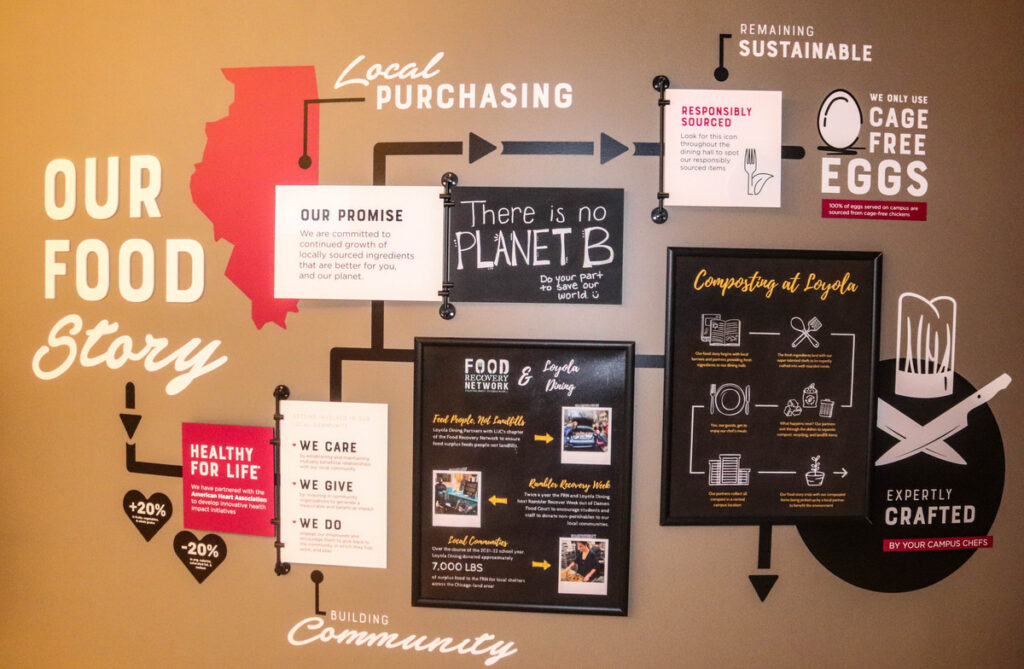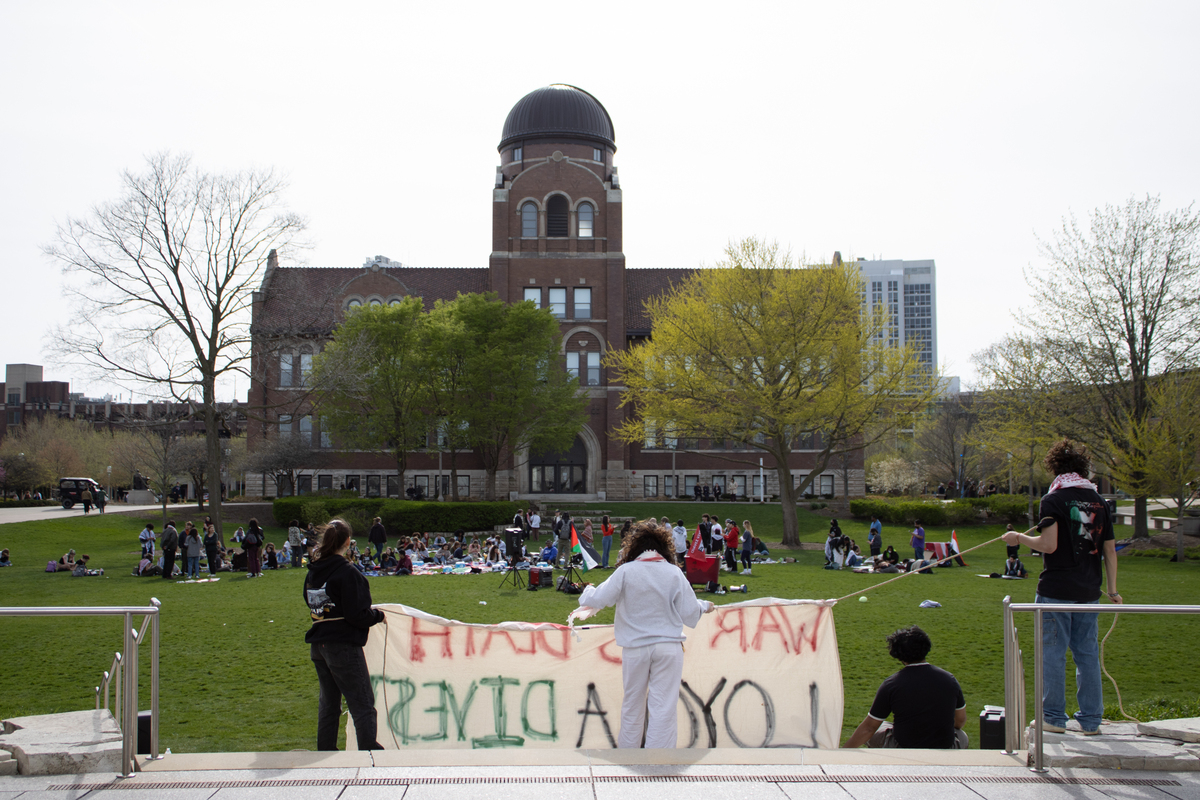Loyola Dining Services have partnered with organizations that aim to lower the environmental impact of food in order to promote sustainability in the dining halls.
Eco-Friendly Sourced Food Being Served in Loyola Dining Halls

The dining halls at Loyola have taken strides to ensure that they are serving eco-friendly food on campus that has a low impact on climate change, according to Loyola Dining Services.
Partnering with organizations that help companies lower their impact on the climate, such as Cool Foods, Loyola Sustainability Manager Jordan Davis explained that dining hall food is sourced in an eco-friendly way by making local purchases and focusing on plant-based foods.
“Approximately 9.9% of our food served in Loyola dining halls are considered sustainable from our purchases this school semester,” Davis wrote in an email to The Phoenix. “In 2018, we sourced approximately 4.16%, so we have doubled our sustainable food purchasing. Our grocery/staple purchases makeup 36.3% of our sustainable food purchases.”
Dr. Ray Dybzinski, professor at Loyola’s School of Environmental Sustainability, said that food systems and processes play an important role in sustainability efforts.
“Sustainable food is food that is produced, distributed and disposed of in a way that doesn’t compromise future generations’ ability to produce, distribute and dispose of food,” Dybzinski said.
Eco-friendly efforts in the dining halls have been primarily focused on local food sources, plant-based foods and lowering greenhouse gas emissions to improve sustainability, according to Davis.
“Sourcing food locally is considered a low impact food because there is a shorter distance to travel,” Davis wrote. “Thus, the transport of local food contributes to less pollution and fewer carbon emissions than food that is not sourced locally.”
Students like sophomore Hailey Thompson feel there is a lack of change in the food they’ve been eating or efforts they’ve seen.
“I’m not gonna lie, I haven’t noticed a huge difference,” Thompson said. “I’m more likely to just eat what I know.”
Davis said their work with the organization Cool Foods, an initiative of the World Resources Institute, helps determine what foods are produced more sustainably and emit fewer greenhouse gas emissions. Davis said that this will help make sustainability efforts in the dining halls and retail spaces on campus more noticeable to students.
“In the very near future, we are going to be placing our Cool Food meals symbol next to food items on our menu boards to show students what meals have low environmental impacts compared to other options,” Davis wrote.
Ixchell Barazza, a junior majoring in environmental studies, said she hasn’t seen a major difference on other parts of campus either.
“With my dining dollar plan, I eat primarily from the food court or Engrained Cafe, outside of dining halls,” Barazza said. “I don’t really see a lot of sustainability practices being implemented.”
While eco-friendly food may not be the most obvious to Loyola students, efforts to reduce waste, however, have been more noticeable to some students, like Barazza. Aramark, the supplier of Loyola’s dining services, has also been highly focused on limiting waste and single-use containers.
“They do use takeaway items and compostable materials,” Barazza said. “But other than that I don’t know how they deal particularly with food waste or practice sustainability otherwise.”
The Food Recovery Network (FRN), a student-run organization on campus, is involved in reducing food waste in the dining halls. The main goal of the organization is to recover and reutilize food from campus that would otherwise be wasted and distribute it to members of the community in need, according to the FRN website.
FRN has recovered approximately 25,000 pounds of food since 2017, according to their volunteers’ food tracking log. This food is then brought to a local shelter called A Just Harvest instead of a landfill.
Handling food waste in sustainable ways is incredibly important, according to Dybzinski.
“People are often surprised to find out that 1/3 of all food produced is not consumed by humans,” Dybzinski said. “Ideally, we can be reducing waste and reenvisiong waste in a way that becomes useful for other processes.”










